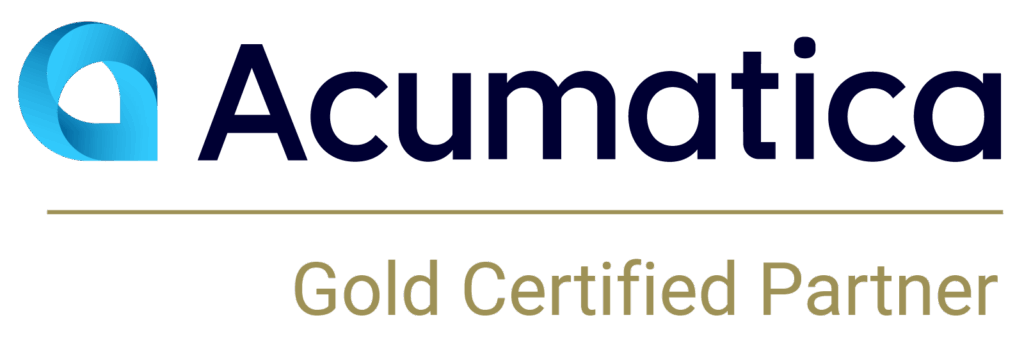Accounting has evolved beyond its traditional confines of bookkeeping and number crunching. Today, proactive accounting is the key to maintaining your organization’s competitive edge. Acumatica Cloud ERP recently published an eBook on this topic, sharing some in-depth, illuminating information. Here we take a complementary high-level view of how a cloud ERP system facilitates this shift toward proactivity.
One foot in the past
Financial professionals have traditionally followed a reactive approach to accounting—responding to issues as they arise, making decisions based on historical data, and often finding themselves on the back foot in rapidly evolving financial scenarios. While this approach has its merits, it can restrict the accountant’s role to problem-solving rather than strategic planning.
Proactive accounting, on the other hand, positions financial professionals at the heart of strategic decision-making. Instead of merely reacting to economic trends or issues, proactive accountants anticipate them. They analyze real-time data to identify patterns, make forecasts, and implement strategies that preempt potential challenges or capitalize on upcoming opportunities.
Taking the leap
Transitioning from reactive to proactive accounting necessitates a fundamental shift in thinking, process reengineering, and deploying leading technology like cloud ERP systems. The transition is well underway. Already, more than half of organizations with ERP software now use cloud-based solutions. How does cloud ERP help finance teams make this change?
Cloud ERP systems offer real-time data access and analysis, a sharp contrast to the periodic reporting that characterizes traditional accounting practices. With a real-time view of financial data, accountants can immediately identify trends, make informed predictions, and implement strategies ahead of time.
Additionally, Cloud ERP systems streamline and automate routine accounting tasks. This automation frees up valuable time for accounting teams, allowing you to focus more on strategic planning and less on administrative tasks.
Finally, cloud ERP systems foster enhanced collaboration. With cloud technology, financial data is not siloed but shared across the organization and physical locations, facilitating improved communication, collective decision-making, and a unified approach to achieving business goals.
Comparing Reactive Versus Proactive Accounting Functions
By embracing proactive accounting functions through a cloud ERP system like Acumatica Cloud ERP, financial professionals can transition from simply documenting financial history to shaping their organization’s financial future. We’ve gathered some examples to illustrate the difference between proactive and reactive accounting workflows.
-
Tax Preparation
Reactive—Year-end Tax Preparation: Traditional accounting often involves preparing for tax season at the end of the fiscal year by compiling receipts, identifying deductions, and organizing paperwork. This reactive approach can lead to missed opportunities for tax planning and strategy.
Proactive—Continuous Tax Planning: A proactive approach to accounting involves ongoing tax planning throughout the year. Accountants monitor financial events in real-time, strategizing to maximize deductions and tax credits and ensuring compliance.
-
Financial Reporting
Reactive—Period-end Reporting: In reactive accounting, financial reports are often generated after the close of a fiscal period (monthly, quarterly, or annually). While these reports provide valuable insights, they are essentially historical, limiting their utility for future planning.
Proactive—Real-time Reporting: With cloud ERP systems, proactive accountants can generate real-time financial reports. This immediate insight allows for swift adjustments to financial strategies, ensuring alignment with business objectives and market trends.
-
Business Planning
Reactive—Problem Solving: Reactive accounting usually focuses on addressing issues after they’ve occurred. For example, if an expense exceeds the budget, reactive accounting will identify and report the issue, but often after the damage has been done.
Proactive—Predictive Analysis: Proactive accounting leverages predictive analytics, forecasting future trends based on current data. For instance, using real-time data, accountants can predict potential budget overruns and implement preventive measures before any real financial harm occurs.
-
And more
While the above examples focus on traditional accounting functions, proactive financial (and operational) management delivers cross-departmental benefits. For example, using Cloud ERP, you may be able to automate replenishment workflows to optimize inventory holdings, leverage integrated CRM to improve customer insight, or automate the depreciation of fixed assets. You’ll find many more examples in the eBook, Why Acumatica is the Right Choice for Today’s Proactive Accountant.
With a cloud ERP system like Acumatica, you gain a highly-effective tool to speed the transition from reactive to proactive accounting, allowing you to drive your organization forward with strategic insight and foresight. It positions your finance department as an essential strategic partner in the organization’s success. Learn more in the eBook, Why Acumatica is the Right Choice for Today’s Proactive Accountant, or by contacting a member of Caron Business Solutions’ Cloud ERP consulting team



